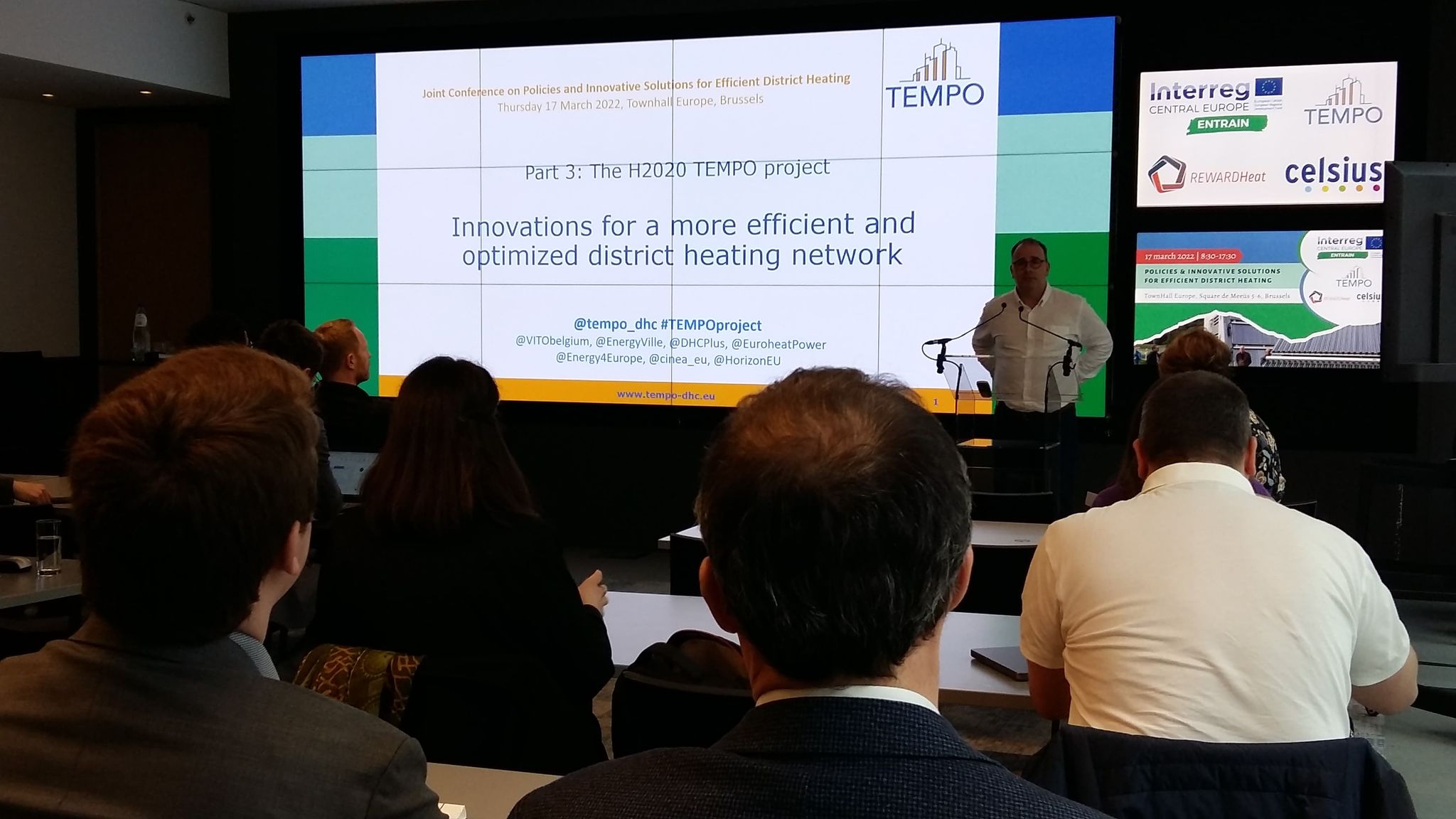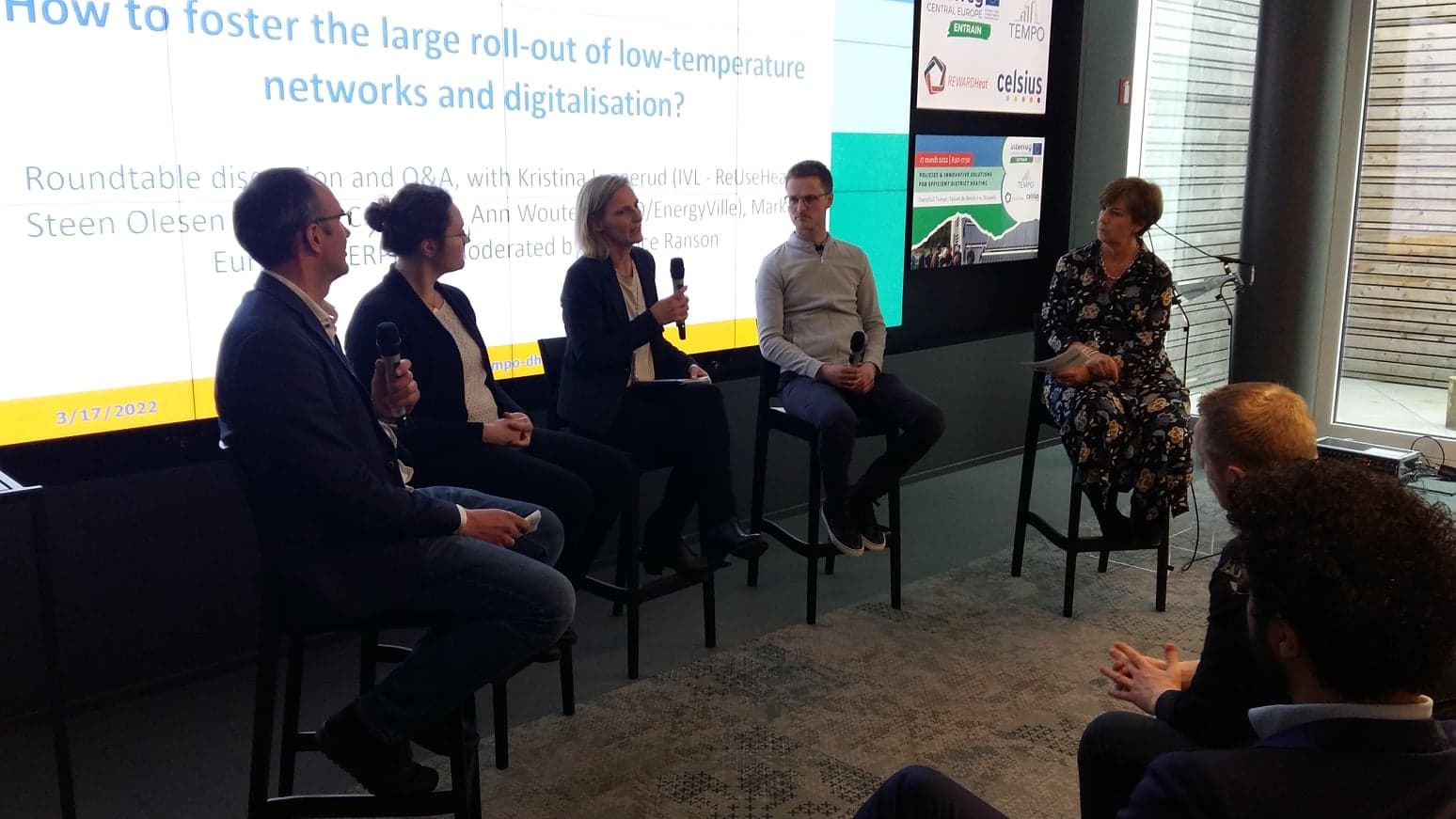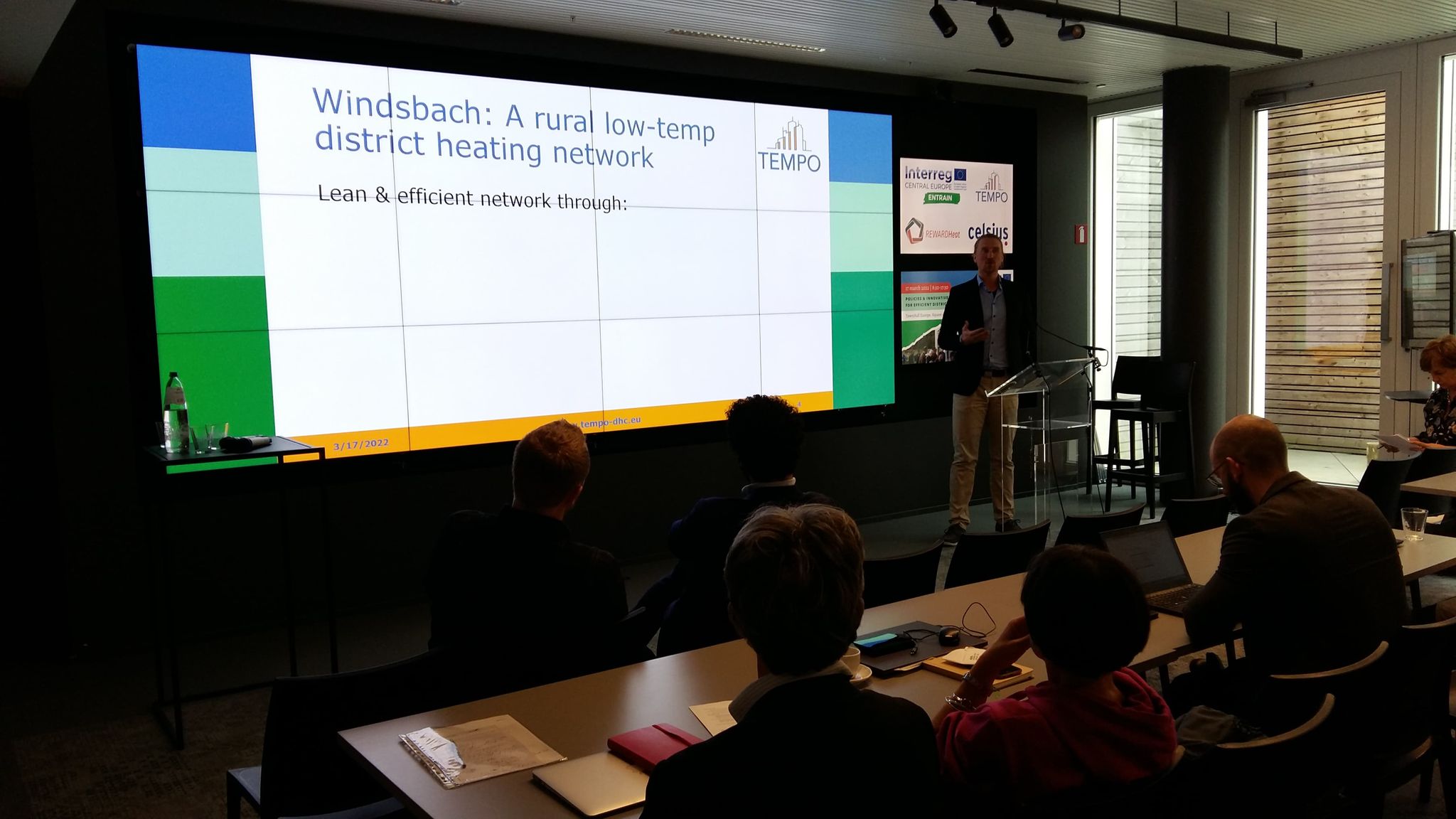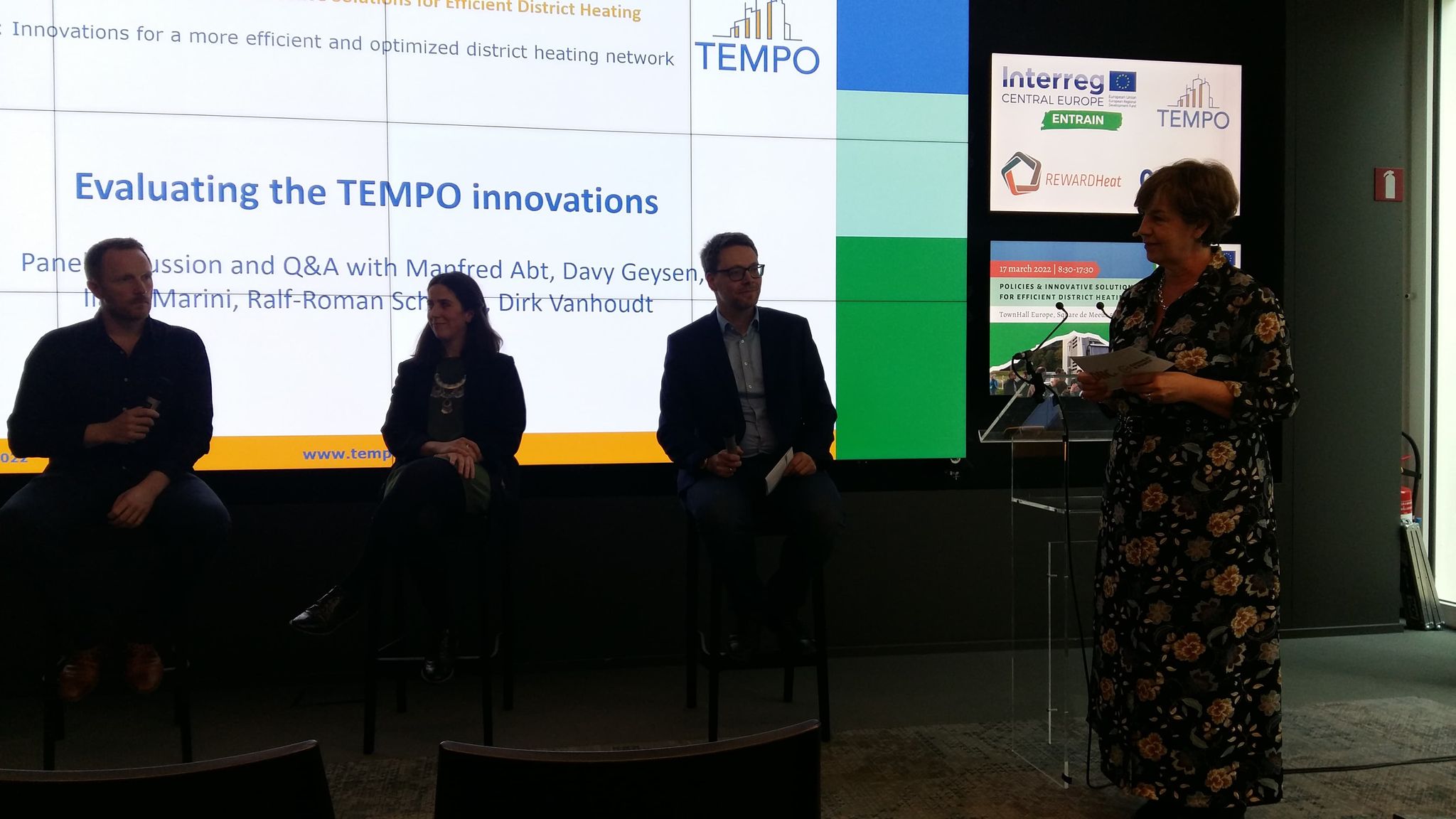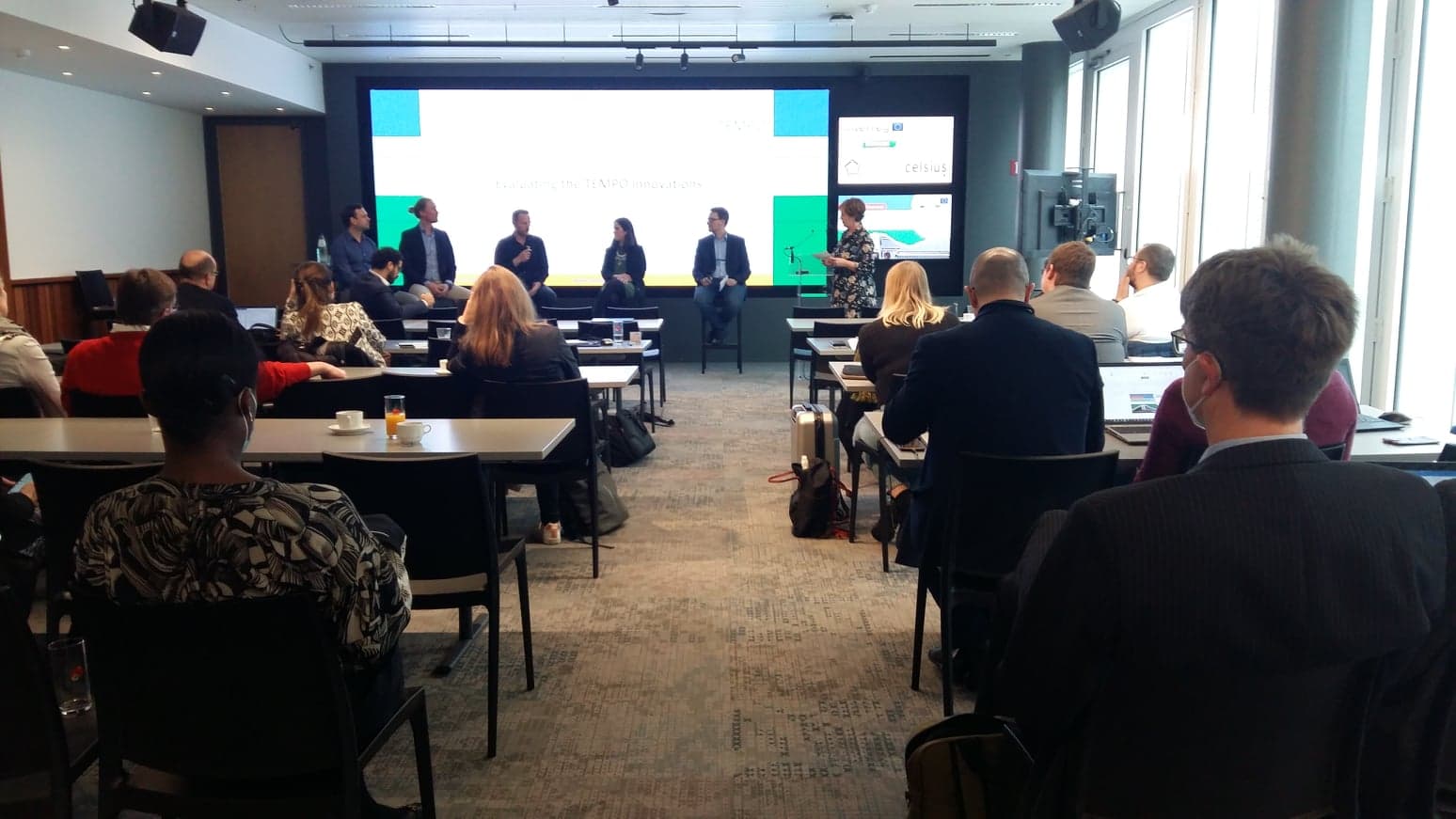
The TEMPO project along with the ENTRAIN project hosted together a one-day conference on 17 March 2022 at Townhall Europe in Brussels, discussing “Policies and Innovative Solutions for Efficient District Heating“. REWARDHeat project and Celsius Initiative participated with a policy workshop. The programme included three sessions:
- ‘Local strategies and actions for renewables in small district heating networks – Interreg CE ENTRAIN project’
- ‘Delivering environmental objectives through sustainable heating and cooling: A new generation of district heating and cooling networks – H2020 REWARDHeat project & Celsius Initiative’
- ‘Innovations for a more efficient and optimised district heating network – H2020 TEMPO’
See the full programme. Read the press release.
The third session constituted the final event of the H2020 TEMPO project and marked the completion of 4,5 years of work. TEMPO focused on developing innovative solutions for lowering the temperature of district heating networks.
The session’s highlight involved the presentation (incl. a virtual tour) and discussion of key learnings, successes, and challenges in the two demo sites in Germany and Italy, where the technological innovations in digitalisation, network infrastructure and building installations were implemented. A panel discussion at the end reflected on the replication potential of the TEMPO innovation and how to enable their roll out across Europe.
More analytically, in the beginning, the comprehensive solution package developed by TEMPO was presented, which consists of technological innovations on the network and building side, consumer empowerment enabled by digital solutions, and an innovative business model for EU replication. The work at the demonstration sites at Windsbach, Germany and Brescia, Italy along with all their experience, success and lessons were the highlights of the session. The technical innovations implemented included the Smart DHC network controller to balance supply and demand and minimise return temperature, the compact individual buffer unit ‘CaldoTherm’ to allow peak shaving, a new piping system with smaller dimensions that alleviates the investment costs.
Last, the discussions were the most interactive parts of the session where project partners and guest had the chance to reply to questions concerning the future of LTDH and the TEMPO innovations. Once again, the benefits of low-temperature district heating were highlighted, as they constitute the objectives of TEMPO: Fewer heat losses, increased share of low-temperature renewable energy sources, increased efficiency of heat production technologies). As it was plainly put, the lower the network temperature drops, the higher integration of waste heat can be achieved. On a supplementary comment, it was indicated that a there is a lack of a common understanding of what waste heat constitutes. In that aspect, it is recommended that national and EU policies should align and share the same definition for the term ‘waste heat’ its limitations and uses.
Another important aspect of the implementation process has been the engagement of the customers. It was emphasized that commitment from the side of end-users requires trust between the stakeholders; meeting in person with the homeowners and customers was crucial for the successful outcome at the demo sites. It was also pointed out that end-users shall be a new focal point in the DHC discussion and to explore where their interests lie. With the help of the new digitalisation tools, a significant amount of useful data is available, which in turn can feed with facts the dialogue between stakeholders and end-users.
Click on the presentation titles to access the slides.
• Temperature optimisation for low-temperature district heating networks across Europe – The H2020 TEMPO project in a nutshell – Johan Desmedt, Project Coordinator (VITO/EnergyVille)
• What innovations can TEMPO bring for district heating networks? – Dirk Vanhoudt (VITO/EnergyVille)
• The rural low-temperature district heating network in Windsbach, Germany and its innovations and findings – Manfred Abt (ENERPIPE), Davy Geysen (VITO/EnergyVille)
• Challenges and success in lowering temperature in an existing urban network in Brescia, Italy – Ilaria Marini (a2a Calore e Servizi), Ralf-Roman Schmidt (Austrian Institute of Technology)
• How to bring the TEMPO innovations to the market? The way forward to a large replication potential – Erik De Schutter (VITO/EnergyVille), Somil Miglani (VITO/EnergyVille)
A glimspe of the event:
